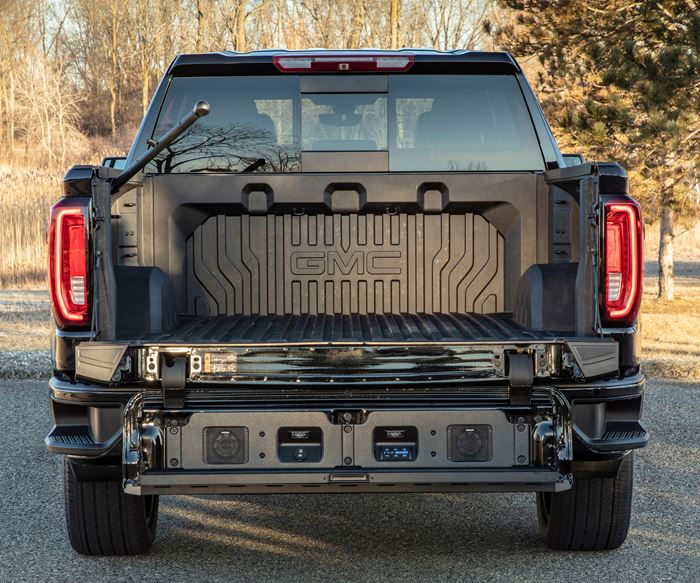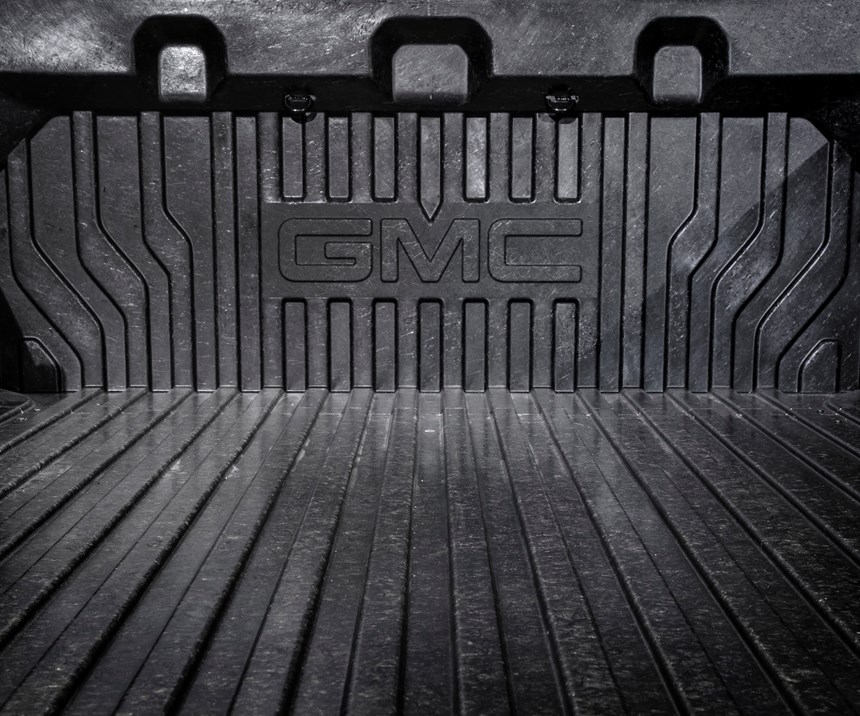Teijin's Sereebo CFRTP used in GM high-volume vehicles
The carbon fiber-reinforced thermoplastic (CFRTP) material will be available this year in CarbonPro pickup boxes for select GM truck models.
Teijin Ltd. (Tokyo, Japan) has announced that its Sereebo carbon fiber-reinforced thermoplastic (CFRTP) has been selected by General Motors (GM; Detroit, Mich., U.S.) for use in select pickup box applications. This is the world’s first use of CFRTP for structural parts in a high-volume production vehicle.
Sereebo will be used to manufacture the optional CarbonPro pickup box jointly developed by Teijin and GM for the GMC Sierra Denali 1500 and GMC Sierra AT4 1500 (Read more about the manufacture and design of the CarbonPro box). Specifically, the pickup box’s inner headboard, side and floor panels will be made with Sereebo. Following production startup in early June, GMC Sierra CarbonPro Editions for both vehicles will begin appearing at select GMC dealerships in the U.S. this summer. The CarbonPro panels will be produced at Continental Structural Plastics’ (CSP; Auburn Hills, Mich., U.S.) Huntington, Ind., U.S., manufacturing facility.
Sereebo used for CarbonPro contains randomly-orientated, isotropic carbon fiber in a polyamide matrix resin. Manufactured using with the world's first mass-production technology for CFRTP, the molding time for Sereebo is said to be approximately one minute, significantly shorter than the molding time for conventional carbon fiber-reinforced thermoset plastics (CFRP). Compared to steel, CarbonPro is said to be 40% lighter, offers 10 times greater impact resistance, is more corrosion-resistant and is more readily recyclable. Because of its material characteristics, Sereebo offers extended design flexibility and freedom, which enabled GM engineers to mold in many of the features of the CarbonPro box.
Teijin has been developing composite product technologies and applications since establishing the Teijin Composites Innovation Center in 2008. In 2011, the company developed the world’s first mass-production technology for CFRTP, realizing a production interval (takt) time of just one minute. Teijin subsequently established a technical facility in the U.S. and a pilot plant for the fully integrated production of CFRTP in Japan. Since branding its CFRTP product as Sereebo in 2012, Teijin developed high-volume production methods in collaboration with domestic and international partners, including GM. After acquiring in 2017CSP , Teijin established an organizational framework for composites production, sales and evaluation in North America.
Teijin is expanding its product portfolio ranging from materials to component design, as well as its global supply chain, in an effort to help automakers reduce vehicle weight. Teijin also aims to become an automotive solution provider by expanding its offerings beyond carbon fiber and glass fiber materials, for which the company is actively collaborating with other materials manufacturers. The automotive composite products business of the Teijin Group is targeting annual sales of $2 billion by 2030.
Related Content
-
The potential for thermoplastic composite nacelles
Collins Aerospace draws on global team, decades of experience to demonstrate large, curved AFP and welded structures for the next generation of aircraft.
-
Natural fiber composites: Growing to fit sustainability needs
Led by global and industry-wide sustainability goals, commercial interest in flax and hemp fiber-reinforced composites grows into higher-performance, higher-volume applications.
-
Plant tour: Joby Aviation, Marina, Calif., U.S.
As the advanced air mobility market begins to take shape, market leader Joby Aviation works to industrialize composites manufacturing for its first-generation, composites-intensive, all-electric air taxi.

.jpg;width=70;height=70;mode=crop)















